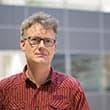This course is part of Crop Production and Soil Management.
This course explores the critical importance of soil to life on Earth and sustainable soil management practices. Students will learn about soil formation processes, functions, and the various threats facing this vital resource. The course covers key topics including soil water relations, fertility management, biodiversity preservation, and solutions for issues like erosion, compaction, pollution, and salinization. Through hands-on projects and practical experiments, participants will understand the socio-economic aspects of soil management and develop skills to contribute to soil protection. The course combines theoretical knowledge with real-world applications, allowing students to investigate soil characteristics in their local environment and participate in interactive activities like the African Highland Farmer Game.
4.5
(23 ratings)
29,281 already enrolled
Instructors:
English
English
What you'll learn
Understand soil importance and sustainable management principles for life on Earth
Master soil formation processes functions and basics of soil degradation
Analyze soil water relations fertility and biodiversity management
Evaluate solutions for soil erosion compaction pollution and salinization
Comprehend socioeconomic and policy aspects of sustainable soil management
Develop skills to actively contribute to soil protection initiatives
Skills you'll gain
This course includes:
PreRecorded video
Graded assignments, exams
Access on Mobile, Tablet, Desktop
Limited Access access
Shareable certificate
Closed caption
Get a Completion Certificate
Share your certificate with prospective employers and your professional network on LinkedIn.
Created by
Provided by

Top companies offer this course to their employees
Top companies provide this course to enhance their employees' skills, ensuring they excel in handling complex projects and drive organizational success.





There are 11 modules in this course
The course provides comprehensive coverage of sustainable soil management principles and practices. Students learn about soil formation, functions, and the various threats affecting soil health globally. The curriculum includes detailed study of soil-water interactions, fertility management, biodiversity conservation, and specific challenges like erosion, compaction, pollution, and salinization. Through practical exercises and interactive projects, participants gain hands-on experience in soil assessment and management techniques. The course also covers socio-economic aspects and policy considerations for sustainable soil management, culminating in a synthesis of knowledge through a personal case study.
Soil formation, functions and threats
Module 1
Soil water processes
Module 2
Dynamics of soil fertility
Module 3
Loss of soil biodiversity
Module 4
Water erosion
Module 5
Wind erosion
Module 6
Soil compaction
Module 7
Soil pollution
Module 8
Soil salinization
Module 9
Achieving sustainable soil management
Module 10
Final exam
Module 11
Fee Structure
Individual course purchase is not available - to enroll in this course with a certificate, you need to purchase the complete Professional Certificate Course. For enrollment and detailed fee structure, visit the following: Crop Production and Soil Management
Payment options
Financial Aid
Instructors

3 Courses
Leading Authority in Soil Physics and Environmental Conservation
Dr. Coen Ritsema serves as Professor and Chair of the Soil Physics and Land Management group at Wageningen University & Research, bringing over three decades of expertise in soil and water sciences. With an impressive ISI Web of Science H-index of 40, he has established himself as a prominent figure in land-hydrology interactions and soil conservation research. His work spans fundamental and applied research, focusing on soil physical and chemical processes, land degradation, and conservation issues across different spatial and temporal scales. He has coordinated numerous EU-funded projects and published approximately 150 research papers in international scientific journals. His academic excellence has been recognized through three honorary professorships at prestigious institutions: Deakin University (2004), Chinese Academy of Sciences (2008), and Moscow State University of Environmental Engineering (2009). As lead coordinator of the MOOC "Sustainable Soil Management: Soil for Life," he guides students through critical aspects of soil conservation and management. His contributions to the field were acknowledged with the Distinguished Researcher Award from the World Association of Soil and Water Conservation in 2013. Beyond academia, he serves on the IPBES scoping group for land degradation and restoration, collaborating with major international organizations like UNEP, UNESCO, FAO, and UNDP. His current research continues to advance our understanding of soil physics, land management, and sustainable agricultural practices, while his leadership in large international multidisciplinary projects demonstrates his commitment to addressing global environmental challenges through collaborative research and education.

3 Courses
Leading Expert in Soil Conservation and Wind Erosion Research
Dr. Michel Riksen serves as an Assistant Professor in the Soil Physics and Land Management group at Wageningen University & Research, where he has built an extensive career since 1998. After completing his MSc in Tropical Land Management with a specialization in Erosion and Soil & Water Conservation at Wageningen University in 1994, he began his research career studying wind erosion and soil conservation in Northern Europe. His academic journey includes significant work through an EU-funded Wind Erosion project, where he investigated soil conservation measures and socio-economic aspects of wind erosion. In 2001, he received a prestigious PhD fellowship from the Cornelis Lely Foundation, leading to his doctoral thesis "Wind Born(e) Landscapes" which explored the role of wind erosion in landscape development. Since becoming an Assistant Professor in 2009, he has focused on teaching soil and water conservation measures and land management strategies, while continuing his research on wind erosion processes, particularly in inland drift sands in the Netherlands. His expertise spans wind erosion, coastal dune formation, soil conservation, and landscape ecology, contributing significantly to understanding soil degradation processes and developing sustainable management practices. As an instructor for the MOOC "Sustainable Soil Management: Soil for Life," he helps students worldwide understand the importance of soil conservation and sustainable land management practices. His research combines practical field studies with policy analysis, making him a valuable contributor to both academic knowledge and practical soil conservation strategies.
Testimonials
Testimonials and success stories are a testament to the quality of this program and its impact on your career and learning journey. Be the first to help others make an informed decision by sharing your review of the course.
Frequently asked questions
Below are some of the most commonly asked questions about this course. We aim to provide clear and concise answers to help you better understand the course content, structure, and any other relevant information. If you have any additional questions or if your question is not listed here, please don't hesitate to reach out to our support team for further assistance.



